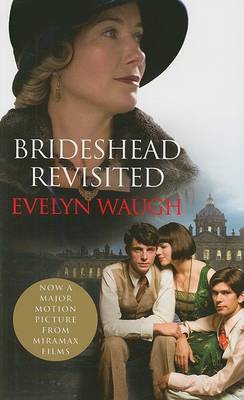Reviewed by brokentune on
On re-reading the book, I discovered that take on the story, the characters, the writing, or the ideas put forth in the book has changed a little.
It was easier to engage with the book now that I have read other books by Waugh and his contemporaries, but at the same time I also found it way more tedious to slog through the last part of the book.
Yes, the sadness of the characters is very real and dramatic, but I seem to have less patience now than on my first read for the self-imposed suffering that Waugh's characters take on by insisting that they have to sacrifice their chance of happiness for the sake of religion. At that, for a religious faith which seems to have arrived out of the blue...and with that I also had little patience for Waugh's religious philosophising, which I am sure some readers may see as the essence of quality in this story. For me, it spoilt the story and the character study just as much as Graham Greene's religious theorising spoilt reading his The Power and the Glory or Monsignor Quixote for me.
What I would have liked to have had fleshed out a bit more was Sebastian's state of mind. Why did he chose to go into exile? Why did he loose the spirit with which he was described in the opening chapters of the book?
Still, despite the short-comings of the book, of which there were a few (including Waugh's casting a couple of stereotyped characters), it is an interesting book and one of Waugh's better one. The opening descriptions of Charles' return to Brideshead, the contracts in the circumstances of his visits, the implied description of the fall of the upper classes, and the unbelievable sadness of Charles' realisation that he has wasted his life is as beautiful as it is harrowing. The only author I have read who has outclassed Waugh in writing about these aspects is Ishiguro ... but if you ask me, he is in a completely different league altogether.
Lastly, a note on the audiobook read by Jeremy Irons. It is fabulous!
Reading updates
- Started reading
- 15 November, 2017: Finished reading
- 15 November, 2017: Reviewed
